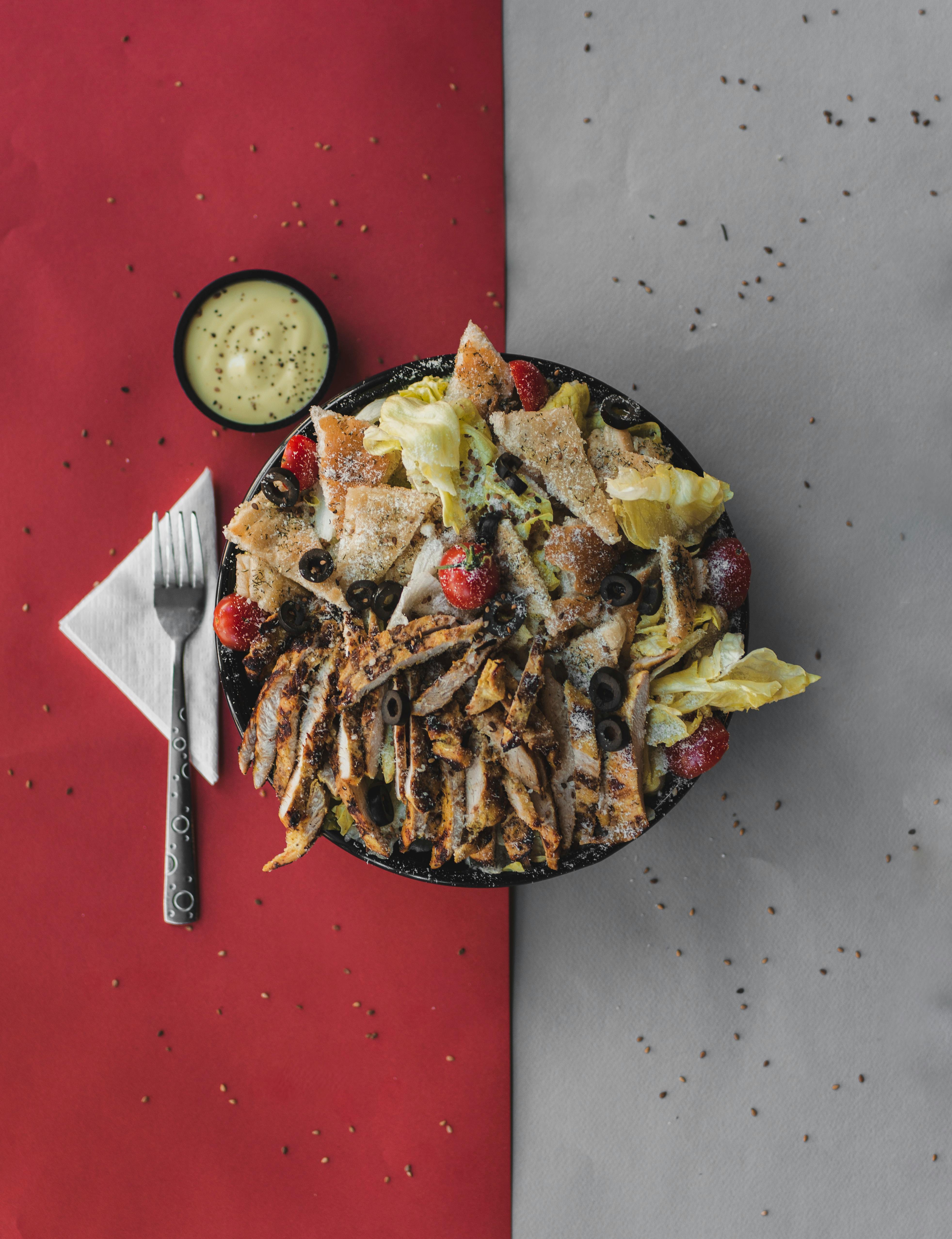Effective Ways to Optimize Your Keto Carnivore Diet for 2025 Success
The keto diet and the carnivore diet have become increasingly popular for their promise of rapid weight loss, robust energy levels, and improved overall health. Both dietary approaches prioritize low carbohydrates and high fats, but they vary significantly in their food sources and philosophies. In 2025, optimizing these diets could lead to enhanced benefits ranging from better metabolic health to heightened mental clarity. Understanding how to effectively implement a low carb and high fat regimen can set you on the path to success.
This article will delve into effective strategies for optimizing your keto carnivore diet. You'll discover practical tips on meal prep, nutrient density, protein intake, and how to maintain ketosis. It will also highlight challenges often faced in these dietary approaches and how to overcome them. By the end of this guide, you’ll be equipped with the knowledge necessary to thrive on a ketogenic lifestyle and reap its myriad keto benefits.

Key Strategies for Your Keto Carnivore Meal Plan
Building on the fundamentals of a keto carnivore diet, let’s explore essential strategies for creating a balanced meal plan. Meal planning is vital for success and sustainability.
1. Focus on Nutrient Density
The principle of nutrient density is vital when planning meals within a carnivore meal plan. This means prioritizing foods that provide the most nutrients per calorie. Opt for organ meats such as liver, which are packed with vitamins A, B12, and other necessary minerals.
Choosing high-quality meats like grass-fed beef and wild-caught fish can offer superior omega-3 fatty acids compared to grain-fed alternatives. Incorporate foods with a high nutritional profile to ensure that you meet your dietary needs without feeling deprived, which can enhance your overall experience and adherence to the diet.
2. Implement Intermittent Fasting
Integrating intermittent fasting with your keto routine can potentiate your results dramatically. This practice involves cycling between periods of eating and fasting, allowing your body to tap into stored fat for energy—essential for achieving ketosis.
This not only aids in faster fat loss but can also improve mental clarity and energy levels. For beginners, starting with a windows of 12:12 or 16:8 can make the transition easy and feasible.
3. Plan for Protein Intake
Balancing protein intake is crucial to muscle preservation while on the keto carnivore diet. While animal-based diets are inherently high in protein, tracking your intake ensures that you’re not over-consuming it, which could kick you out of ketosis.
Using a keto food list or meal prep guide can help you manage your servings effectively, allowing flexibility without sacrifice. Aim for a moderate protein intake centered around rich sources like lamb, beef, and eggs.
4. Stay Hydrated
Hydration is paramount when performing a high-fat diet. Water helps in digestion and can mitigate some ketogenic side effects like "keto flu." Pay attention to both electrolytes and hydration levels, as changes in fluid balance can affect your progress on a low carb lifestyle.
Consider supplementing with electrolytes, particularly sodium, potassium, and magnesium, since a shift to these diets can predispose your body to lose more water and electrolytes.
5. Monitor Ketosis Regularly
To ensure that you’re staying in a state of nutritional ketosis, regular monitoring is advisable. You can achieve this via breath, urine, and blood ketone tests. Tracking your ketosis state can guide your dietary adjustments, enhancing your ability to maintain or shift your nutritional strategies as necessary.

Overcoming Common Challenges in the Keto Carnivore Diet
While the keto carnivore lifestyle offers considerable benefits, several challenges can hinder your effectiveness. Understanding these potential pitfalls is essential to navigate and overcome them successfully.
Addressing Digestive Health
A sudden shift to a predominantly meaty diet may disrupt digestive health for some individuals. It's important to gradually adjust your diet to enable your gut microbiome to adapt. Incorporating carnivore cooking methods, such as slow-cooking and pressure cooking, can enhance digestibility, aiding in nutrient absorption.
Additionally, consider adding fermented animal products, such as certain types of dairy or bone broth, which can aid digestion and introduce beneficial bacteria into your gut.
Navigating Social Situations
Social eating can often pose challenges for maintaining your dietary regimen. Whether it is a family gathering or dining out, it’s crucial to prepare by checking menus ahead or even bringing your meal. Communicating with friends and family about your dietary preferences can also foster understanding and support.
Additionally, learning to adapt recipes into keto-friendly versions can be a fun way to share meals without sacrificing dietary preferences.
Managing Emotional Relationships with Food
Food plays a significant role in emotional health and well-being. As you transition to a keto carnivore diet, it can be beneficial to cultivate an understanding of your eating patterns and emotional triggers. Journaling your meals and moods can help identify patterns, allowing you to tackle emotional eating effectively.
Engaging with the keto community can provide support, resources, and encouragement to help you stay motivated through challenges.
Enhancing Energy Levels and Mental Clarity
As you optimize your keto carnivore diet, you'll find that energy levels and mental performance significantly improve because of the body’s shift into fat-burning mode. This shift can lead to enhanced cognitive function and sustained energy throughout the day.
Utilizing Healthy Fats
Incorporating healthy fats, particularly omega-3 fatty acids, into your diet is crucial for brain health and energy. Foods such as salmon, mackerel, and chia seeds are excellent sources of these important fats. Emphasis on incorporating animal fats from pasture-raised and grass-fed animals can also provide beneficial nutrients.
Incorporating Carnivore Comfort Foods
Carnivore comfort foods can provide psychological benefits while still aligning with your dietary goals. Dishes like carnivore beef stew or creamy bone broth can be nutritious while satisfying cravings, proving that healthy eating can still be satisfying and enjoyable. Get creative with carnivore recipes that offer a familiar taste while sticking to your regimen.
Tracking Your Progress and Adjustments
Keeping a detailed log of your meals, physical changes, and mental clarity can show you how your body responds to different foods. Adjusting your meal plan based on what you discover will help maintain your keto journey's longevity. Progress should be assessed not just in terms of weight, but also energy levels, mental clarity, and overall mood.
Supplementing Your Keto Carnivore Diet for Success
While following a well-rounded diet can provide necessary nutrition, certain keto supplements can aid in ensuring that you meet all your nutritional needs. These can be particularly helpful during initial adaptation phases.
Integrating Essential Supplements
Key supplements to consider include magnesium, electrolytes, and omega-3 fatty acids. These additions can enhance overall health and adapt quickly to dietary changes. Supplements may also mitigate symptoms of keto flu and improve energy and mood levels.
Utilizing Collagen and Bone Broth
Collagen and bone broth can act as great supplemental options that offer enhanced protein benefits and gut healing properties. They may also provide an additional strategy for maintaining hydration, as they are rich in electrolytes.
Exploring Herbal Supplements
Herbal supplements like adaptogens can be valuable in managing stress levels associated with dietary changes. Moreover, they can contribute to overall well-being. Be sure to consult with a healthcare professional before adding new supplements to your routine.
FAQs about the Keto Carnivore Diet
Here are some frequently asked questions that may provide further insight into optimizing your keto carnivore diet.
What are the main benefits of a keto carnivore diet?
The main benefits include improved weight loss, enhanced energy levels, better mental clarity, and alleviation of digestive issues. Many individuals experience higher satiety levels and reduced cravings on this diet.
Can I eat non-animal products on a carnivore diet?
Strictly speaking, the carnivore diet does not include non-animal products. However, some followers may choose to incorporate limited dairy products or specific plant-based items for variety. It’s essential to assess your own body’s response to any add-ins.
How do I maintain ketosis while on a carnivore diet?
Maintaining ketosis can be achieved by focusing on low-carbohydrate animal products, ensuring adequate fat intake, and monitoring your protein levels. Regular testing for ketones can aid in ensuring you remain in ketosis.
Is it possible to be vegan or vegetarian on a ketogenic diet?
While challenging, a vegan or vegetarian ketogenic diet can be achieved by focusing on very low-carb plant sources, healthy fats, and protein alternatives; however, this is outside the principles of a traditional carnivore diet.
In summary, the keto carnivore diet has the potential for significant health and wellness benefits, provided individuals take caution and follow effective strategies. Embracing community support and continuously adapting as needed will aid in long-term success.
